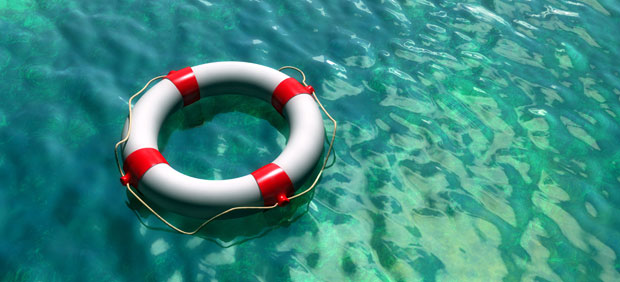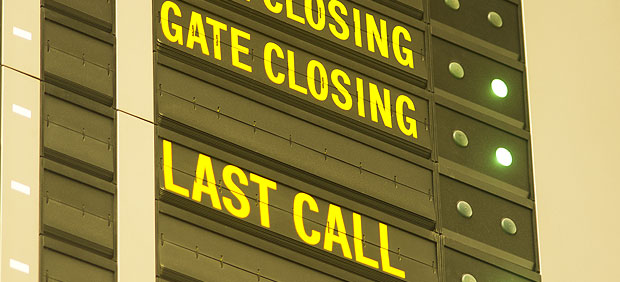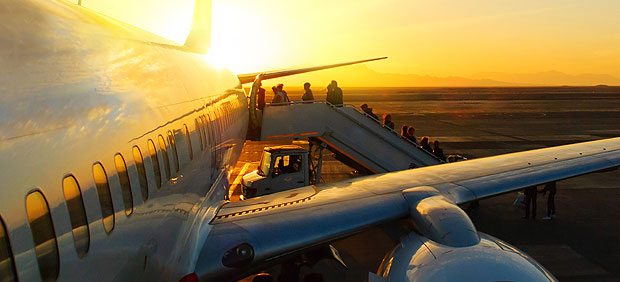
FOLLOW Fareboom
The Ultimate Guide To Dealing With Travel Emergencies: Part 1
By Fareboom Staff, Sun, Nov 10, 2013The best moments of your trip are often the ones that aren’t planned. However, while stumbling upon an unexpected local restaurant or taking a spur-of-the-moment day trip are awesome, other unpredictable travel events, like losing a passport or getting sick, can be devastating.
In this comprehensive two-part guide, we’ll walk you through everything you need to know about dealing with travel emergencies like a pro. We’re not guaranteeing that solving these problems will be stress-free, but we do promise that you’ll feel more in control. If you’re planning ahead, preparing for these problems could save you tons of time and money.
Things that Happen to You or Your Friends
Get Injured or Sick
If you’re hurt or get sick while you’re abroad, don’t just tough it out in your hotel room. Sure, sometimes you just need to take an afternoon or a day off and have a rest, but far too many travelers are intimidated by the thought of going to a medical facility in another country.
You can start by going to a local pharmacy to ask for over-the-counter medications for symptom relief if you have a cold or need a bandage. However, there are certain major injuries and illnesses that need advanced care. Our advice? Get yourself to a hospital or at least a clinic if you have any of the following symptoms:
● Uncontrolled bleeding
● Extreme pain in injured area
● High Fever (101 or higher)
● Trouble Breathing
● Chest Pain
● Uncontrolled vomiting or diarrhea
● Confusion or inability to form thoughts and words
● Any gut feeling that something isn’t right and you need help now
If you haven’t left home yet and are preparing for your travels now, be sure to call your health insurance company directly before you travel. Some, but not all, insurance programs have international components. Be sure to understand what is and is not covered abroad. Also, since you can’t dial toll-free 1-800 numbers from outside of the U.S., make sure you get a local phone number for your health insurance so you can call in an emergency. You can also try a service like Viber, which allows free calling to anywhere in the world as long as you have WiFi access.
If your insurance company doesn’t offer any international coverage, consider looking into short-term travel insurance. There are hundreds of options available. Consider getting a plan that covers both itinerary changes (like cancelled flights) as well as emergency medical while abroad.
Someone’s Lost
We’ve all been there before. You’re kicking yourself because you didn’t set a meeting point, but what do you do now that someone in your group is lost? Or perhaps you’re the one who has gone missing.
First, stop wandering. Go to an obvious location. If you’re on a guided tour, go to the exit of the tour to find your group. If you are lost in a city, go back to your hotel or to the place where your group started, like the main square. If you’re the lost one, try to call your hotel’s front desk and leave a message about your location so that your party can find you.
If your companion is missing, search for them in obvious locations. They should be staying put. In extreme cases, you can report a missing person to the local authorities and your nearest Embassy, but not before returning to your home base and waiting for at least 24 hours.
And to prevent these types of problems from occurring, be sure to set a meeting location at every major itinerary stop. For example, meet on the front steps of museums. Having these common rules will help you to worry less about someone moving through an activity faster or slower than the rest of the group.
Keep in mind that GPS on smartphones continue to work with or without cell reception because they run off a different satellite. Regardless whether or not you activate an international SIM card abroad, you’ll still have access to GPS maps, including Google Maps, and can still call anyone, anywhere as long as you have WiFi access.
In Trouble with the Law
More than 90% of arrests abroad are drug or alcohol related. The absolute best thing you can do to stay out of legal trouble abroad is to keep away from drugs and to never leave your bags unattended.
If you or a friend are already in trouble with the law, request representation by your nearest Embassy or Consulate right away. They have to respond without delay so that you are not waiting for weeks with no information. That being said, international law, particularly drug law, is no joke and prisons abroad should be avoided at all costs. Watch one episode of Locked Up Abroad and we know you’ll agree.
Things that Happen to Your Stuff
Lost Passport
Having a passport go missing immediately sends your heart into your throat. First, carefully search your pockets, bags and surrounding area. Retrace your steps and check your room. If you still cannot find it, you’ll need to go to the nearest Embassy or Consulate straight away. Keep in mind that foreign offices only process lost or stolen passports during business hours, so you may need to stay in your destination longer than you planned.
To prevent some of these problems, make a photocopy of your passport now. That’s right, stop reading this and go make a copy now. Put that copy in your luggage and carry your passport on your person. That way, if your passport is lost or stolen, you’ll have a copy of it to present to the Embassy. This will expedite your process greatly. Always laminate the photo copy of your passport. All it takes is one travel-sized bottle of mouth wash to open and ruin that backup passport you had with you.
Missing passports are no fun. Expect to pay for your replacement and to spend some time explaining your situation and providing other identification at your Embassy. For more information, check out www.travel.state.gov.
Stolen Wallet
Losing your money while out of the country can be just as awful as losing a passport. If your credit cards are stolen, get yourself to an Internet connection. Look up your bank’s phone number and call to cancel your cards as soon as possible. You’ll also want to file a police report to aid you in the process of getting any fraudulent charges removed from your account. Before you travel anywhere abroad, check through your wallet and determine what needs to travel with you and what serves no purpose going abroad. That way you eliminate the hassle of any potential lost cards that you weren’t going to use overseas anyways.
If you haven’t left on your trip yet, you can make a huge impact on how stressful this situation can be. First, make photocopies of the fronts and backs of your credit cards and debit cards. Keep that electronically saved in your e-mail.
Leave one credit card or debit card in the hotel room, preferably under lock and key, with your photocopy of your passport. Also, keep any excess cash stored safely as well.
If you follow these steps, you will have easy access to your card numbers and the phone numbers you should call to quickly cancel your stolen cards. By keeping one form of payment safely stowed away in your hotel room, you can be sure to avoid being stuck somewhere with no money to get home.
Lost or Damaged Luggage
While damaged luggage is a huge bummer, lost luggage can be even more frustrating. With damaged luggage, report the luggage damaged at the baggage counter before you even leave the airport. Salvage what you can and replace what you must.
For lost luggage, be sure to report it to the baggage counter before you leave the airport as well. Leave the address of where you are staying so that your luggage can be brought to you when it arrives. If you can, borrow clothes from friends and purchase the necessities like a toothbrush and deodorant.
Will you be taking more than one checked bag with you? If so, spread out your clothing into two separate suit cases. This way, if only one bag goes missing you won’t be stuck with five pairs of socks but no underwear.
If you are still planning your trip, consider getting travel insurance. This will help reimburse you for the costs of replacing your lost or damaged luggage and the contents of your luggage.
Also, be sure to pack one change of clothes and any necessary medicines, contacts or glasses and any valuables with you in your carry-on luggage. This will save you major hassle and heartache if you’re without your luggage temporarily or for good.
Click here to read part two of our two-part series on dealing with travel emergencies. The second article will show you how to handle unexpected problems.
Do you like being the first to know?
If you enjoy always getting the best tips, deals and insider news before everyone else then make sure to follow us on Pinterest, Facebook and Twitter.









